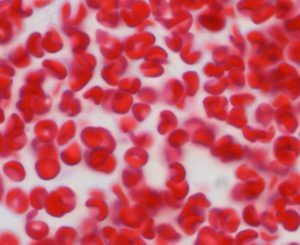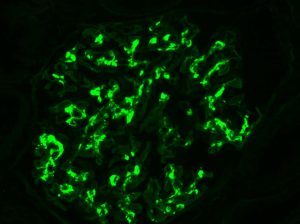What is IgA nephropathy?
IgA nephropathy is one of the most common causes of kidney disease.
In IgA nephropathy, an abnormal form of IgA (short for Immunoglobulin A, an antibody) deposits in the kidney and causes injury.
What are the signs and symptoms of IgA nephropathy?
In some cases, IgA nephropathy may have no symptoms.
The most common sign and symptom is blood in the urine (hematuria).
Hematuria may be a small amount and only detected by a urine test, or may be visible in the urine.
Other signs and symptoms may include:
- High blood pressure (hypertension)
- Protein in the urine (proteinuria)
- Swelling of the feet (edema)

What causes Immunoglobulin A Nephropathy?
The cause of IgA nephropathy in some patients is not known.
Known causes of IgA nephropathy include:
- Infection
- Liver disease
- Gastrointestinal disease
How is Immunoglobulin A Nephropathy diagnosed?
A kidney biopsy is the only way to diagnose IgA nephropathy because other kidney diseases produce similar symptoms and laboratory abnormalities.

What happens to a patient with IgA nephropathy?
- Some patients may improve without treatment
- Some patients may respond to treatment
- Some patients will have hematuria or proteinuria for many years
- Some patients will develop renal failure and require dialysis or kidney transplantation
Patient Resource Sheet
Quick note: This post is to be used for informational purposes only and does not constitute medical or health advice. Each person should consult their own doctor with respect to matters referenced. Arkana Laboratories assumes no liability for actions taken in reliance upon the information contained herein.



